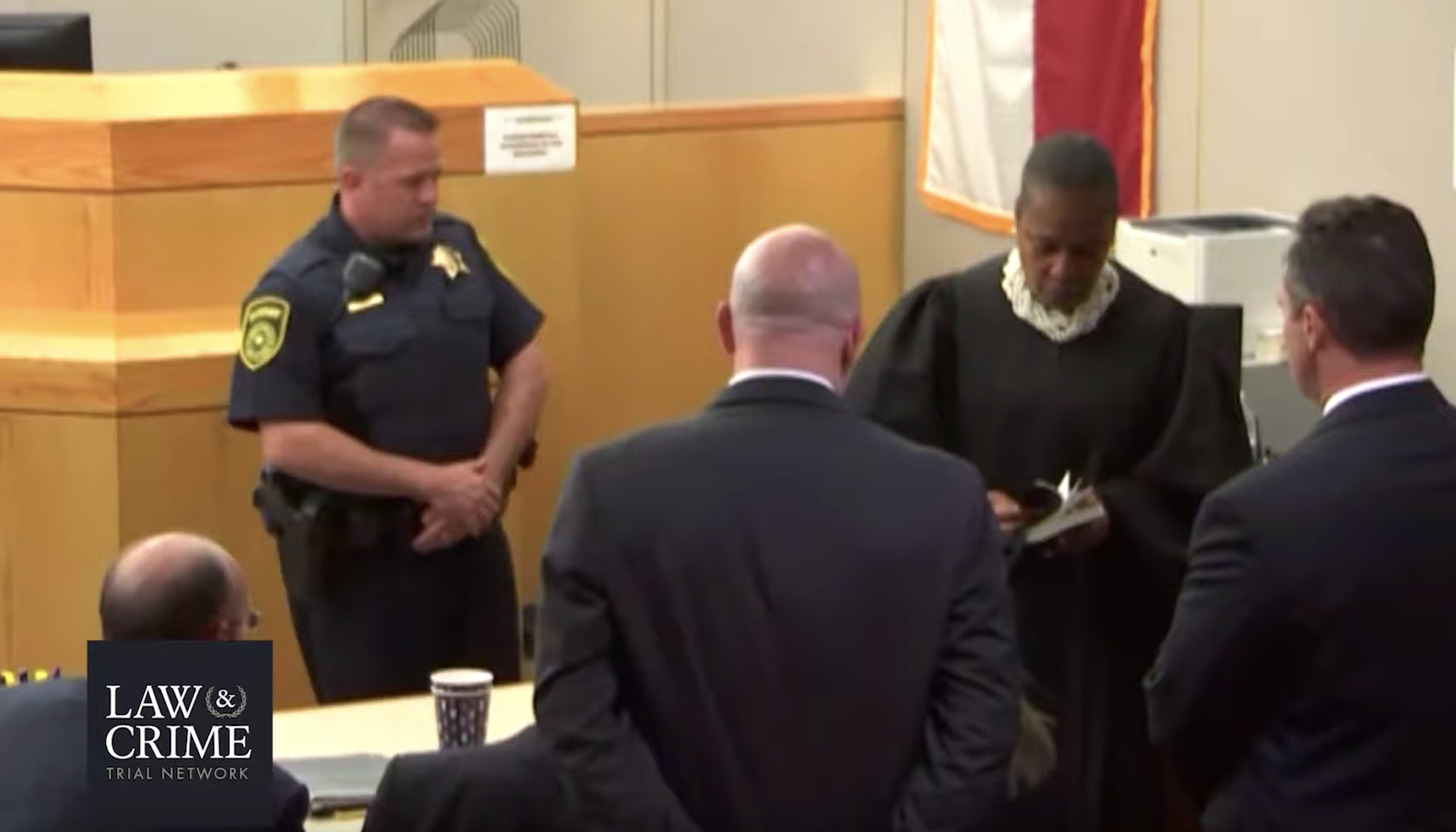
The proselytizing judge in the Amber Guyger case has inadvertently confessed to the validity of an ethics complaint against her, the Freedom From Religion Foundation points out in a follow-up.
FFRF had complained to the Texas State Commission on Judicial Conduct when Judge Tammy Kemp presented convicted murderer and former Dallas police officer Amber Guyger with a bible at the close of the trial. Courtroom video had shown that following the sentencing and victim impact statement, Kemp had left the courtroom and had come back with her personal bible. She had then gifted her bible to Guyger, providing her directions on how and where to read in the religious text.
These judicial actions were inappropriate and unconstitutional, FFRF had contended. Government employees may not use the power and privilege of their offices to preach their personal religious beliefs, FFRF Co-Presidents Annie Laurie Gaylor and Dan Barker had emphasized.
In a formal follow-up letter today, FFRF brought the commission’s attention to Kemp’s appearance on CNN on Oct. 8, during which she admitted that she was fulfilling her religious duty during that episode rather than her secular duty as a judge:
I kind of thought about my responsibilities as a person. And ironically, I was standing in a spot where I had been standing when I was inducted as a judge in this courtroom, and I remembered that one of the charges that I was given was to do just, to love mercy, and to walk humbly.
Kemp is not referring to the oath she took as a judge, but is instead citing Micah 6:8 from the bible, which states: “And what does the LORD require of you? To act justly and to love mercy and to walk humbly with your God.” Kemp is effectively doubling down on her message that her primary duty is to her religion and not to our secular Constitution, and that those who might desire favorable treatment in her courtroom would do well to appeal to her Christian beliefs. Given Kemp’s explicit admission that she’s using her position as a judge to fulfill her religious responsibility, FFRF is asking the Texas State Commission on Judicial Conduct to take all appropriate steps to ensure that she will not engage in this misconduct again.
Many people were upset with Kemp’s decision to hug Guyger, but FFRF notes that the hug isn’t an issue with the state/church watchdog. Its request for a formal ethics investigation rests solely on Kemp’s use of a state judicial power to promote her personal religion.
“We believe that our criminal justice system needs more compassion from judges and prosecutors, but here compassion crossed the line into coercion,” Gaylor and Barker had written in the original complaint. “And there can be few relationships more coercive than a sentencing judge in a criminal trial and a citizen accused and convicted of a crime.”
The Freedom From Religion Foundation is a national nonprofit organization with more than 30,000 members and several chapters across the country, including over 1,300 members in Texas and a chapter in Dallas-Fort Worth. FFRF’s purposes are to protect the constitutional principle of separation between church and state, and to educate the public on matters relating to nontheism.

